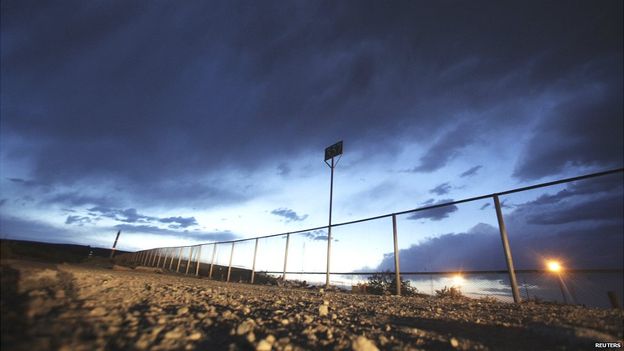
 By Chris Rickerd
By Chris Rickerd
Last month, the Department of Homeland Security’s Office of Immigration Statistics concluded “the southwest land border is more difficult to illegally cross today than ever before.” Between 2000 and 2016, Border Patrol apprehensions declined by 72 percent. The decline has been so significant that the average border agent is catching about one migrant per month. Despite this, there are thousands more Border Patrol agents now than even 10 years ago, as the force more than doubled after 9/11 to over 21,000 authorized personnel today.
The fact of the matter is that U.S. border security is more than adequate, unless you’re a Republican member of Congress that is.
Yesterday the House Homeland Security Committee voted, on a party-line split, to advance the Border Security for America Act, which would authorize $10 billion to build Trump’s “big, beautiful” wall, to hire 5,000 more Border Patrol agents, to deploy National Guard units, and to purchase drones and other surveillance galore. The bill, in short, approves militaristic responses to the
dystopic but fictional vision President Trump promulgates about the supposedly porous, irredeemably violent border. It also includes a congressional blank check for Customs and Border Protection —Border Patrol’s parent and the largest law enforcement agency in this country — by allowing its agents to ignore dozens of environmental and other laws protecting public enjoyment of federal lands.
With our northern and southern border allies, the ACLU opposes this harmful and unnecessary legislation, and we aim to amplify border residents’ concerns about further militarization and surveillance of their communities. But the question remains: Why is the Trump administration obsessed with adding 5,000 new Border Patrol agents — including efforts to weaken hiring standards — especially when the force’s current authorization is not close to fully staffed? There’s a political explanation, of course, based on Trump’s fear-mongering about the border and a reward for the Border Patrol union’s early campaign support. But the policy has no basis in the facts.
A review by DHS’s Inspector General just concluded that neither CBP nor Immigration and Customs Enforcement, which Trump wants to triple in size, “could provide complete data to support the operational need or deployment strategies for the additional 15,000 agents and officers they were directed to hire.” This report goes into detail about how current Border Patrol deployment plus staff roles are inefficient and inflexible given mission needs.
Widespread reporting, even a recent episode of Last Week Tonight with John Oliver, shows the perils of the last round of Border Patrol expansion. CBP personnel have a corruption rate identified by a DHS Integrity Advisory Panel as “far exceed[ing], on a per capita basis, such arrests at other federal law enforcement agencies.” CBP has also been responsible for excessive force and other integrity failures that harm individual rights. The basic principle is clear, and law enforcement experts like the Police Executive Research Forum agree: “Don’t cut corners to hire large numbers of officers quickly.”
Nongovernmental organizations studying border security reinforce this analysis. The CATO Institute calls Border Patrol staffing and spending “wasteful.” The Washington Office on Latin America dispels “Four Common Misconceptions about Increasing the Size of Border Patrol,” including rhetoric about a mythically insecure border that simply doesn’t exist outside campaign rallies.
One clear reason for the House border bill is that Border Patrol expansion serves the administration’s goal of spreading fear among immigrants by expanding its deportation force. In just nine months of this year, Border Patrol agents have, for example, harassed and arrested DACA recipients, detained an infant’s parents at a hospital right before his urgent surgery, lied about arresting a domestic violence survivor, and conducted street arrests in Louisiana far from any land border.
The border security bill would only exacerbate this culture of impunity at CBP. Complaints, for example, frequently go unaddressed, as several reports this summer distressingly underscore. The American Immigration Council revealed that 96 percent of complaints reviewed by AIC resulted in no action on the allegation, while the Kino Border Initiative detailed the filing of 49 complaints against CBP, with no response by the agency to 36 of them. Our own Border Litigation Project analyzed CBP records to reveal that of 408 complaints from detained children:
“Only 2 percent of the investigative files indicate that the complainant was interviewed. Only 4 percent of case files contained indications that the accused agents were interviewed. Only a single investigative file contained indications that physical evidence was collected. Only one file noted that investigators made a site visit.”
The evidence is overwhelming that CBP must get its house in order on oversight and accountability, not hire more agents. And Congress must stop using the borderlands and their people as caricatured political props. Instead, Representatives and Senators from both sides should stand with these communities to reject defamatory, damaging legislation like the Border Security for America Act.
Chris Rickerd is the Policy Counsel for the ACLU National Political Advocacy Department
